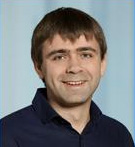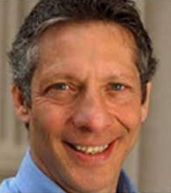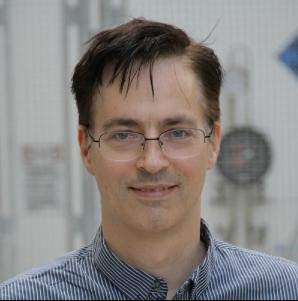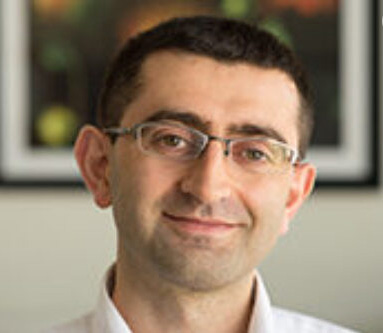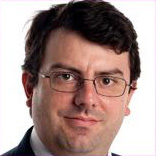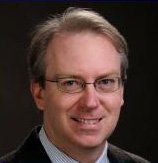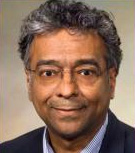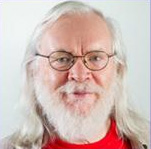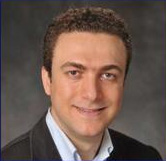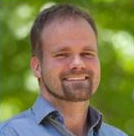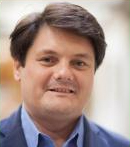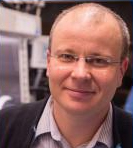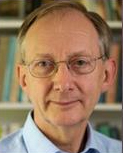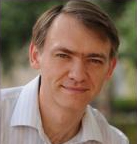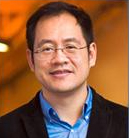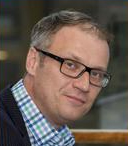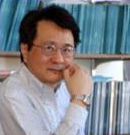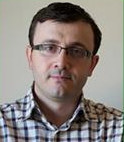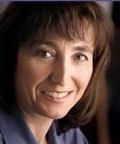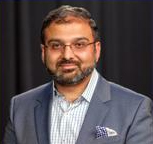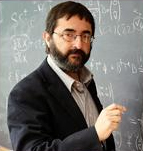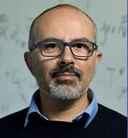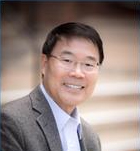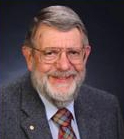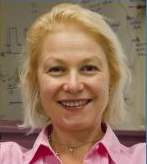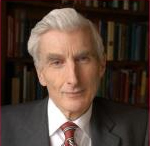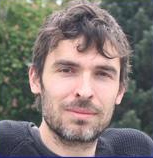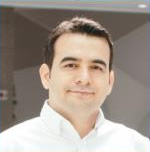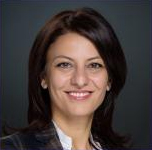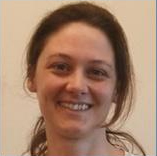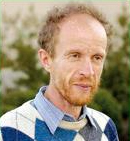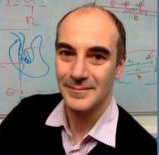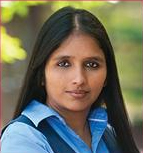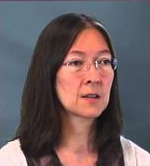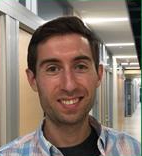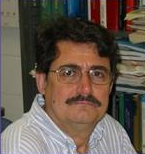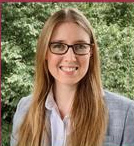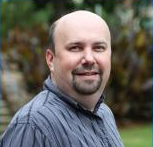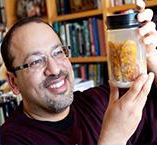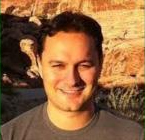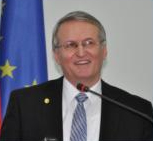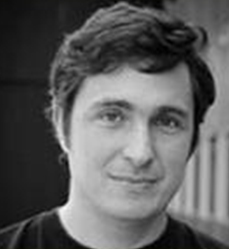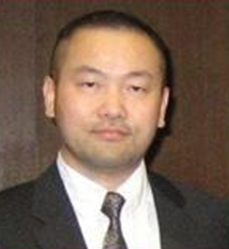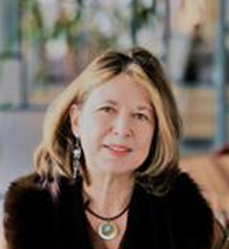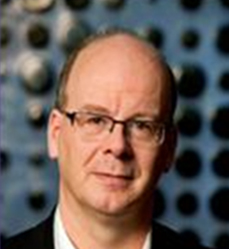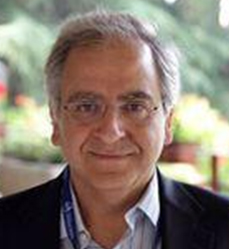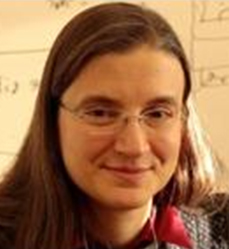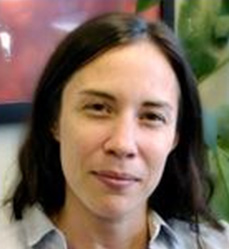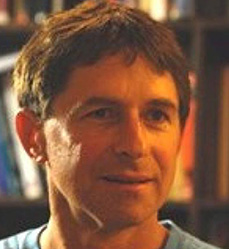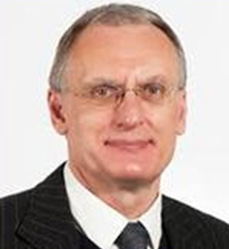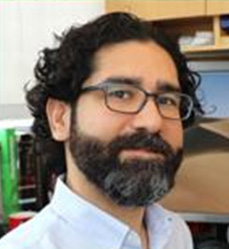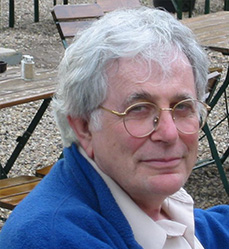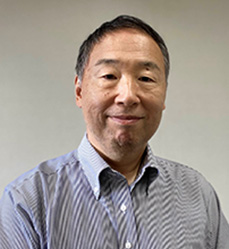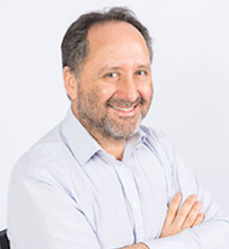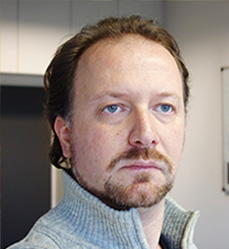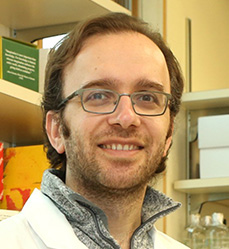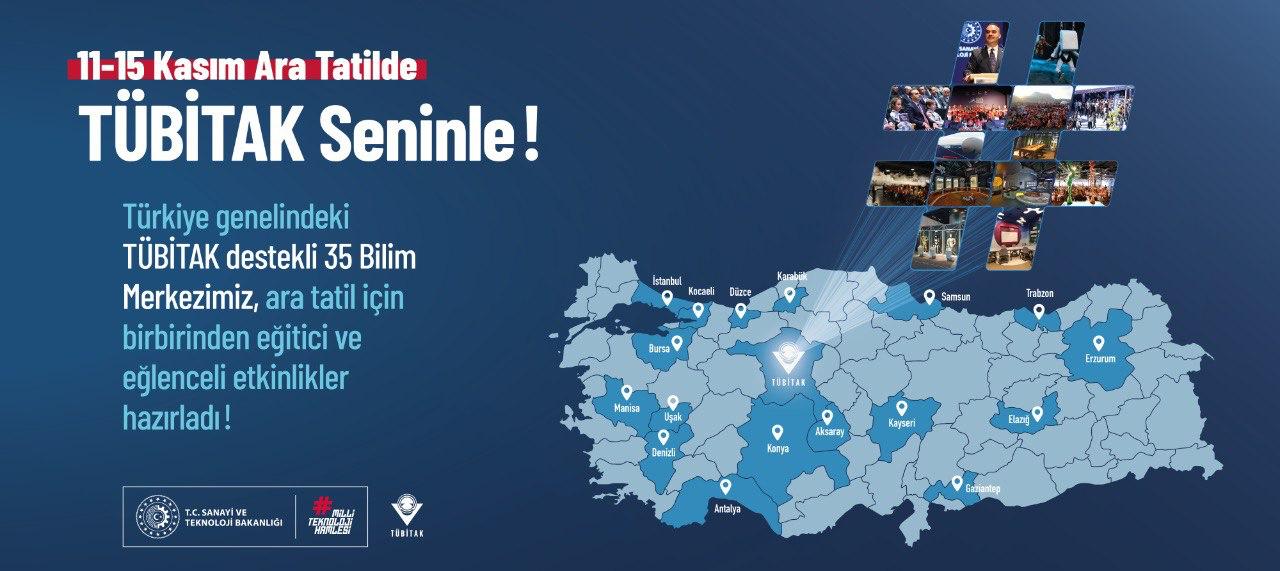Arama
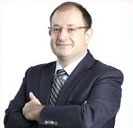 | Hilmi Volkan Demir 16 - 17 Mart 2022 | 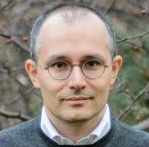 | Fatih Ömer Ilday 30 - 31 Ekim 2021 |
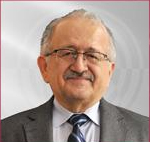 | Ahmet Gül 21 - 22 Mayıs 2021 | 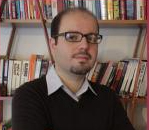 | Tamer Önder 7 - 8 Mayıs 2021 |
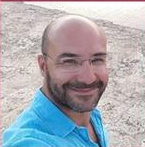 | Emre Erdem 19 - 20 Mart 2021 |  | İnanç Adagideli 8 - 11 Kasım 2019 |
 | Ceyhun Bulutay 8 - 11 Kasım 2019 |  | Kadir Durak 8 - 11 Kasım 2019 |
 | Zafer Gedik 8 - 11 Kasım 2019 |  | Oğuz Gülseren 8 - 11 Kasım 2019 |
 | Özgür Müstecaplıoğlu 8 - 11 Kasım 2019 |  | Cengiz Onbaşlı 8 - 11 Kasım 2019 |
Maksym Kovalenko 26 - 27 Ekim 2022 |
Edward Farhi 1 - 15 Temmuz 2022 |
Jeremy Levy 1 - 15 Temmuz 2022 |
Nuh Gedik 1 - 15 Temmuz 2022 |
Xavier Calmet 8 - 9 Haziran 2022 |
Charles Kane 11 - 12 Mayıs 2022 |
Abhay Ashtekar 4 - 5 Mayıs 2022 |
John Ellis 30 - 31 Mart 2022 |
Aydoğan Özcan 23 - 24 Mart 2022 |
Johannes Voss 15 - 16 Aralık 2021 |
Shamil Sunyaev 8 - 9 Aralık 2021 |
Dmitri V. Talapin 1 - 2 Aralık 2021 |
John Pendry 26 - 27 Kasım 2021 |
Anton N. Kapustin 24 - 25 Kasım 2021 |
Ju Li 20 - 21 Kasım 2021 |
Andrei K. Yudin 17 - 18 Kasım 2021 |
Nai Phuan Ong 12 - 13 Kasım 2021 |
Ahmet Yıldız 10 - 11 Kasım 2021 |
Wendy L. Freedman 5 - 6 Kasım 2021 |
Irfan Siddiqi 3 - 4 Kasım 2021 |
Fernando Quevedo 27 - 28 Ekim 2021 |
Emanuele Berti 13 - 14 Ekim 2021 |
Pedro G. Ferreira 8 - 9 Ekim 2021 |
Xiaoqing Pan 6 - 7 Ekim 2021 |
Nobel Ödülü Sahibi David Wineland 29 - 30 Eylül 2021 |
Nobel Ödülü Sahibi William D. Phillips 16 - 17 Haziran 2021 |
Julia R. Greer 9 - 10 Haziran 2021 |
Sir Martin J. Rees 4 - 5 Haziran 2021 |
Igor Lesanovski 2 - 3 Haziran 2021 |
Ali Coşkun 26 - 27 Mayıs 2021 |
Esra Bülbül 19 - 20 Mayıs 2021 |
Tanja Bosak 12 - 13 Mayıs 2021 |
Eugene Koonin 5 - 6 Mayıs 2021 |
Achillefs Kapanidis 28 - 29 Nisan 2021 |
Shohini Ghose 23 - 24 Nisan 2021 |
Fay Dowker 21 - 22 Nisan 2021 |
José Ordovas-Montañes 14 - 15 Nisan 2021 |
Baha Balantekin 8 - 9 Nisan 2021 |
Phiala Shanahan 3 - 4 Nisan 2021 |
Olexandr Isayev 1 - 2 Nisan 2021 |
Peter Girguis 17 - 18 Mart 2021 |
Alper Küçükural 10 - 11 Mart 2021 |
Ion Tiginyanu 3 - 4 Mart 2021 |
Luis Lehner 16 - 17 Aralık 2020 |
Yang Zhang 9 - 10 Aralık 2020 |
Ivet Bahar 25 - 26 Kasım 2020 |
Ralph Wijers 11 - 12 Kasım 2020 |
Cumrun Vafa 4 - 5 Kasım 2020 |
Bilge Yıldız 28 - 29 Ekim 2020 |
Cora Dvorkin 21 - 22 Ekim 2020 |
Nir Ben Tal 15 - 16 Ekim 2020 |
Alexander V. Sergienko 7 - 8 Ekim 2020, 27 Haziran - 15 Temmuz 2022 |
|
Alan C. Luntz 23 - 24 Eylül 2020 |
Isao Tanaka 16 - 17 Eylül 2020 |
Barry Sanders 9 - 10 Eylül 2020, 27 Haziran - 15 Temmuz 2022 |
Luca Ghiringhelli 26 - 27 Ağustos 2020 |
Semir Beyaz 20 - 21 Ağustos 2020 |
Angelo Bassi 13 - 20 Mart 2020, 1-15 Temmuz 2022 |
Vahid Karimipour 13 - 20 Mart 2020 |
Winfried Hensinger 9 - 12 Kasım 2019 |
Eugene Polzik 8 - 13 Kasım 2019 |
Menno Poot 8 - 12 Kasım 2019, 1-15 Temmuz 2022 |
Sergii Strelchuk 8 - 10 Kasım 2019 |
Alexander Lvovsky 7 - 10 Kasım 2019 |
Luciano Rezzolla 9 - 11 Temmuz 2019 |
Nergis Mavalvala 8 - 12 Temmuz 2019 |
Scott A. Hughes 7 - 14 Temmuz 2019 |
Badri Krishnan 7 - 11 Temmuz 2019 |
Amanda Cooper-Sarkar 30 Haziran - 6 Temmuz 2019 |
Subir Sarkar 30 Haziran - 6 Temmuz 2019 |
Andrei Starinets 30 Haziran - 5 Temmuz 2019 |
Tracy Slatyer 29 Haziran - 3 Temmuz 2019 |
Samir Mathur 28 Haziran - 2 Temmuz 2019 |
Michael Peskin 26 Haziran - 5 Temmuz 2019 |
Viatcheslav Mukhanov 25 - 27 Haziran 2019 |
Tansu Daylan 13 Haziran - 4 Temmuz 2019 |
TÜBİTAK TBAE İletişim Bilgileri
TÜBİTAK Başkanlık
Tel : 0 312 468 53 00
e-posta : iletisim[at]tubitak.gov.tr
Adres : Tunus Caddesi No:80 06100 Kavaklıdere / Ankara
TÜBİTAK TBAE
Tel : 0 262 677 23 30
Fax : 0 262 641 23 09
e-posta : tbae.iletisim[at]tubitak.gov.tr
Adres : TÜBİTAK TBAE, Barış Mah. Dr. Zeki Acar Cad. No:1 P.K. 21, 41470 Gebze / Kocaeli
Hafta içi çalışma saatleri: 08.00 - 12.00, 13.00 - 17.00 arası
TÜBİTAK’ın bilimsel ve teknolojik alanlarda araştırma ve geliştirme faaliyetlerini desteklemek, bilim insanlarının, araştırıcıların yetiştirilmeleri ve geliştirilmeleri için olanak sağlamak amacıyla verilen “TÜBİTAK Bilim, Özel, Hizmet ve Teşvik Ödülleri” kapsamında 2024 yılında 7 Bilim Ödülü, 1 Hizmet Ödülü ve 13 Teşvik Ödülü verilmesine karar verildi.
TÜBİTAK Yönetim Kurulu tarafından ödül tevcih edilen bilim insanları:
Prof. Dr. Seda Keskin Avcı

Yeni nesil nano-gözenekli malzemelerin temiz ve sürdürülebilir enerji uygulamalarına yönelik uluslararası düzeyde üstün nitelikli çalışmaları nedeniyle TÜBİTAK Bilim Ödülü verilmiştir.
Ana Bilim Dalı: Kimya Mühendisliği
Araştırma Alanları: Kimya, Fizikokimya, İnorganik ve Nükleer Malzemeler, Biyomalzemeler
Görev Yeri: Koç Üniversitesi Mühendislik Fakültesi Kimya ve Biyoloji Mühendisliği Bölümü
Daha fazla bilgi için: https://mysite.ku.edu.tr/skeskin
Prof. Dr. Sinem Çöleri

Kablosuz haberleşme ve araç haberleşme ağları üzerine yapmış olduğu uluslararası düzeyde üstün nitelikli çalışmaları nedeniyle TÜBİTAK Bilim Ödülü verilmiştir.
Ana Bilim Dalı: Elektrik-Elektronik Mühendisliği
Araştırma Alanları: Altıncı Nesil (6G) ve Sonrası Kablosuz Haberleşme ve Ağlar, Yapay Zekâ Tabanlı Kablosuz Haberleşme, Makineler Arası Kablosuz Haberleşme, Kablosuz Ağ Kontrol Sistemleri, Araç Haberleşme
Görev Yeri: Koç Üniversitesi Mühendislik Fakültesi Elektrik ve Elektronik Mühendisliği Bölümü
Daha fazla bilgi için: https://mysite.ku.edu.tr/scoleri
Prof. Dr. Sinan Gezici

Kablosuz haberleşme sistemlerinde konum belirleme üzerine yapmış olduğu uluslararası düzeyde üstün nitelikli çalışmaları nedeniyle TÜBİTAK Bilim Ödülü verilmiştir.
Ana Bilim Dalı: Elektrik-Elektronik Mühendisliği
Araştırma Alanları: Sinyal İşleme, Haberleşme
Görev Yeri: İhsan Doğramacı Bilkent Üniversitesi Mühendislik Fakültesi Elektrik-Elektronik Mühendisliği Bölümü
Daha fazla bilgi için: http://www.ee.bilkent.edu.tr/~gezici
Prof. Dr. Hakan Özkan

Buğday genetiği, evrimi ve evcilleştirilmesi konusunda uluslararası düzeyde üstün nitelikli çalışmaları nedeniyle TÜBİTAK Bilim Ödülü verilmiştir.
Ana Bilim Dalı: Ziraat Mühendisliği ve Tarla Bitkileri
Araştırma Alanları: Agronomi, Biyoloji Çeşitliliğinin Korunumu, Ekosistem, Genetik ve Kalıtım, Bitki Bilimi
Görev Yeri: Çukurova Üniversitesi Ziraat Fakültesi Tarla Bitkileri Bölümü
Daha fazla bilgi için: https://avesis.cu.edu.tr/hozkan
Prof. Dr. Ahmet Alanay

Omurga hastalıkları alanında omurga deformiteleri ve cerrahisi konularında uluslararası düzeyde üstün nitelikli çalışmaları nedeniyle TÜBİTAK Bilim Ödülü verilmiştir.
Ana Bilim Dalı: Ortopedi ve Travmatoloji
Araştırma Alanları: Tıbbi İnformatik Ortopedi, Nörolojik Bilimler, Cerrahi, Pediatri, Genel ve Dahili Tıp
Görev Yeri: Acıbadem Mehmet Ali Aydınlar Üniversitesi Tıp Fakültesi Cerrahi Tıp Bilimleri Bölümü
Daha fazla bilgi için: https://avesis.acibadem.edu.tr/Ahmet.Alanay
Prof. Dr. Gülen Hatemi

Behçet hastalığının tanı ve tedavisine yönelik uluslararası düzeyde üstün nitelikli çalışmaları nedeniyle TÜBİTAK Bilim Ödülü verilmiştir.
Ana Bilim Dalı: İç Hastalıkları
Araştırma Alanları: Romatoloji, Genel ve Dahili Tıp
Görev Yeri: İstanbul Üniversitesi-Cerrahpaşa Cerrahpaşa Tıp Fakültesi Dahili Tıp Bilimleri Bölümü
Daha fazla bilgi için: https://avesis.iuc.edu.tr/ghatemi
Prof. Dr. Bahar Rumelili Sancak

Uluslararası ilişkilerde liminalite, öteki ve sosyal endişe kavramsallaştırılması alanındaki uluslararası düzeyde üstün nitelikli çalışmaları nedeniyle TÜBİTAK Bilim Ödülü verilmiştir.
Ana Bilim Dalı: Uluslararası İlişkiler
Araştırma Alanları: Uluslararası İlişkiler
Görev Yeri: Koç Üniversitesi İktisadi ve İdari Bilimler Fakültesi Uluslararası İlişkiler Bölümü
Daha fazla bilgi için: https://mysite.ku.edu.tr/brumelili/
Prof. Dr. Meral Beksaç

TÜRKÖK kurulmadan önce ülkemizde ilk kez Ankara Üniversitesi Akraba Dışı Doku Bankasını kurmuş olması, TÜRKÖK kuruluşunda ve Türkiye’de ilk uluslararası Akredite Kordon Kanı Bankasının kurulmasında öncü ve etkin rol alması; hematoloji alanında yaptığı araştırmalar, yürüttüğü ulusal/uluslararası projeler ve yayınlarıyla mensup olduğu bilim dalının ülkemizde kurumsallaşmasında öncü ve etkin rol alarak uzun dönemli yaygın etkili hizmetlerde bulunması nedeniyle TÜBİTAK Hizmet Ödülü verilmiştir.
Ana Bilim Dalı: İç Hastalıkları /Hematoloji
Araştırma Alanları: Kordon Kanı ve Kök Hücre Nakli, Multipl Miyelom Biyolojisi ve Tedavisi, Deneysel Hematoloji
Görev Yeri: İstinye Üniversitesi Tıp Fakültesi Dahili Tıp Bilimleri Bölümü
Daha fazla bilgi için: https://medicine.istinye.edu.tr/tr/kadro/21479
Doç. Dr. Ahmet Acar

Hücresel barkodlama teknolojisi, tümör organoid biyobankası ve dijital patoloji platformları geliştirilmesine yönelik uluslararası düzeyde üstün nitelikli çalışmaları nedeniyle TÜBİTAK Teşvik Ödülü verilmiştir.
Ana Bilim Dalı: Moleküler Biyoloji ve Genetik
Araştırma Alanları: Biyoloji, Ortak Disiplinler
Görev Yeri: Orta Doğu Teknik Üniversitesi Fen-Edebiyat Fakültesi Biyolojik Bilimler Bölümü
Daha fazla bilgi için: https://acarlab-bio.metu.edu.tr
Doç. Dr. Ogün Adebali

Değişik organizmaların DNA hasar yanıtlarının incelenmesine imkân sağlayan biyoinformatik araçlar geliştirme konusundaki uluslararası düzeyde üstün nitelikli çalışmaları nedeniyle TÜBİTAK Teşvik Ödülü verilmiştir.
Ana Bilim Dalı: Moleküler Biyoloji ve Genetik
Araştırma Alanları: Genetik ve Kalıtım, Evrim Biyolojisi
Görev Yeri: Sabancı Üniversitesi Mühendislik ve Doğa Bilimleri Fakültesi Moleküler Biyoloji, Genetik ve Biyomühendislik Bölümü
Daha fazla bilgi için: adebalilab.org
Prof. Dr. Bünyemin Çoşut

Fotoaktif malzeme kimyası alanında, BODIPY temelli malzemelerin sentezi, karakterizasyonu ve uygulamalarına yönelik uluslararası düzeyde üstün nitelikli çalışmaları nedeniyle TÜBİTAK Teşvik Ödülü verilmiştir.
Ana Bilim Dalı: Kimya
Araştırma Alanları: Fizikokimya
Görev Yeri: Gebze Teknik Üniversitesi Temel Bilimler Fakültesi Kimya Bölümü
Daha fazla bilgi için: https://www.gtu.edu.tr/personel/2495/931/display.aspx
Prof. Dr. Mehmet Özkan

3-boyutlu (süper) kütle çekim kuramları ve bunların izafi olmayan limitleri konularındaki uluslararası düzeyde üstün nitelikli çalışmaları nedeniyle TÜBİTAK Teşvik Ödülü verilmiştir.
Ana Bilim Dalı: Fizik
Araştırma Alanları: Fizik, Matematik, Partiküller ve Alanlar
Görev Yeri: İstanbul Teknik Üniversitesi Fen-Edebiyat Fakültesi Fizik Mühendisliği Bölümü
Daha fazla bilgi için: https://mozkanitu.wixsite.com/physics
Doç. Dr. İlknur Eruçar Fındıkçı

Biyouyumlu metal organik kafes formlarının (MOF) enerji ve biyomedikal uygulamalarına yönelik uluslararası düzeyde üstün nitelikli çalışmaları nedeniyle TÜBİTAK Teşvik Ödülü verilmiştir.
Ana Bilim Dalı: Kimya Mühendisliği
Araştırma Alanları: Mühendislik, Kimya, Nanobilim ve Nanoteknoloji
Görev Yeri: Özyeğin Üniversitesi Mühendislik Fakültesi Mühendislik Temel Bilimleri Bölümü
Daha fazla bilgi için: https://faculty.ozyegin.edu.tr/ilknurerucar/
Prof. Dr. Mustafa Servet Kıran

Meta-sezgisel optimizasyon algoritmaların geliştirilmesi üzerine yaptığı uluslararası düzeyde üstün nitelikli çalışmaları nedeniyle TÜBİTAK Teşvik Ödülü verilmiştir.
Ana Bilim Dalı: Bilgisayar Mühendisliği
Araştırma Alanları: Bilgisayar Bilimleri, Yapay Zekâ
Görev Yeri: Konya Teknik Üniversitesi Mühendislik ve Doğa Bilimleri Fakültesi Bilgisayar Mühendisliği Bölümü
Daha fazla bilgi için: http://mskiran.ktun.edu.tr/
Doç. Dr. Cem Tekin

Makine öğrenmesi, veri bilimi ve bilişsel haberleşme alanlarında uluslararası düzeyde üstün nitelikli çalışmaları nedeniyle TÜBİTAK Teşvik Ödülü verilmiştir.
Ana Bilim Dalı: Elektrik ve Elektronik Mühendisliği
Araştırma Alanları: Bilgisayar Bilimleri, Yapay Zekâ, Mühendislik, Elektrik ve Elektronik, Telekomünikasyon, İstatistik ve Olasılık
Görev Yeri: İhsan Doğramacı Bilkent Üniversitesi Mühendislik Fakültesi Elektrik-Elektronik Mühendisliği Bölümü
Daha fazla bilgi için: http://kilyos.ee.bilkent.edu.tr/~cemtekin/
Doç. Dr. Ahmet Eken

Temel immünoloji, moleküler biyoloji alanlarında ve otoimmün ve primer immün yetmezlik hastalıklarının araştırılmasına yönelik uluslararası düzeyde üstün nitelikli çalışmaları nedeniyle TÜBİTAK Teşvik Ödülü verilmiştir.
Ana Bilim Dalı: Temel İmmünoloji, Tıbbi Biyoloji
Araştırma Alanları: İmmünoloji
Görev Yeri: Erciyes Üniversitesi Tıp Fakültesi Temel Tıp Bilimleri Bölümü
Daha fazla bilgi için: https://avesis.erciyes.edu.tr/ahmeteken
Doç. Dr. Yavuz Nuri Ertaş

Biyomedikal mühendisliği nanotıp alanında nanoparçacıklar ve biyomalzemeler kullanılarak etkinleştirilmiş kanser tedavisindeki uluslararası düzeyde üstün nitelikli çalışmaları nedeniyle TÜBİTAK Teşvik Ödülü verilmiştir.
Ana Bilim Dalı: Biyomedikal Mühendisliği
Araştırma Alanları: Hücre&Doku Mühendisliği, Biyomedikal Mühendislik, Çok Disipliner Malzeme Bilimi, Biyomateryaller, Nanobilim&Nanoteknoloji, Radyoloji, Nükleer Tıp&Medikal Görüntüleme
Görev Yeri: Erciyes Üniversitesi Mühendislik Fakültesi Biyomedikal Mühendisliği Bölümü
Daha fazla bilgi için: http://www.ertaslab.com
Doç. Dr. Fatih İnci

Biyoteknoloji, biyomedikal mühendisliği ve nanoteknoloji alanında hasta-başı tanı testleri, biyosensörler, mikroakışkanlar ve bunların klinik uygulamaları konularındaki uluslararası düzeyde üstün nitelikli çalışmaları nedeniyle TÜBİTAK Teşvik Ödülü verilmiştir.
Ana Bilim Dalı: Biyoteknoloji, Biyomedikal Mühendisliği, Nanoteknoloji
Araştırma Alanları: Biyoteknoloji ve Uygulamalı Mikrobiyoloji, Mühendislik, Biyotıp, Nanobilim ve Nanoteknoloji
Görev Yeri: İhsan Doğramacı Bilkent Üniversitesi Ulusal Nanoteknoloji Araştırma Merkezi (UNAM)
Daha fazla bilgi için: https://incilab.bilkent.edu.tr
Prof. Dr. İpek Süntar

Ülkemiz tıbbi bitkilerinin biyoaktiviteleri ve fitokimyasal özelliklerinin araştırılmasına yönelik uluslararası düzeyde üstün nitelikli çalışmaları nedeniyle TÜBİTAK Teşvik Ödülü verilmiştir.
Ana Bilim Dalı: Farmakognozi
Araştırma Alanları: Farmakoloji ve Eczacılık, Bitki Bilimleri, Tamamlayıcı ve Entegre Tıp, Kimya (tıbbi)
Görev Yeri: Gazi Üniversitesi Eczacılık Fakültesi Eczacılık Meslek Bilimleri Bölümü
Daha fazla bilgi için: https://orcid.org/0000-0003-4201-1325
Within the framework of the Turkey Green Industry Project carried out by TÜBİTAK and KOSGEB under the coordination of the Ministry of Industry and Technology with the support of the World Bank, the technical assistance that SMEs will receive to meet the requirements within the scope of compliance with the Green Transformation requirements is supported by the 1831 Green Innovation Technology Mentorship Call.
90% of the services that companies will receive from expert organizations on issues such as technology consultancy, capacity or situation analysis, detection of current problems and solution approaches and road map preparation for current green technologies will be covered by TÜBİTAK as grant support.
1831 Green Innovation Technology Mentorship Call Solution Partner Statement of Intent 2024-02 Announcement has been opened for solution partner organizations that want to provide services within the scope of 1831 Green Innovation Technology Mentorship Call. Applications can be made online via https://eteydeb.tubitak.gov.tr (Prodis).
Dünya Bankası desteğiyle Sanayi ve Teknoloji Bakanlığı’nın koordinasyonunda TÜBİTAK ve KOSGEB tarafından yürütülen Türkiye Yeşil Sanayi Projesi çerçevesinde KOBİ’lerin Yeşil Dönüşüm mevzuatlarına uyum kapsamında gereklilikleri karşılamak üzere alacağı teknik yardım 1831 Yeşil İnovasyon Teknoloji Mentörlük Çağrısı ile desteklenmektedir.
Yeşil teknolojiler konusunda güncel teknolojiler için firmaların teknoloji danışmanlığı, kapasite ya da durum analizi, mevcut problemlerin tespiti ve çözüm yaklaşımları ve yol haritası hazırlama gibi konularda uzman kuruluşlardan alacakları hizmetin %90’ı hibe destek olarak TÜBİTAK tarafından karşılanacaktır.
Yeşil İnovasyon Teknoloji Mentörlük Çağrısı kapsamında hizmet vermek isteyen çözüm ortağı kuruluşlar için 1831 Yeşil İnovasyon Teknoloji Mentörlük Çağrısı Çözüm Ortağı Niyet Beyanı 2024-02 Duyurusu açılmıştır. Başvurular https://eteydeb.tubitak.gov.tr (Prodis) arayüzü kullanılarak çevrimiçi olarak yapılabilir.

